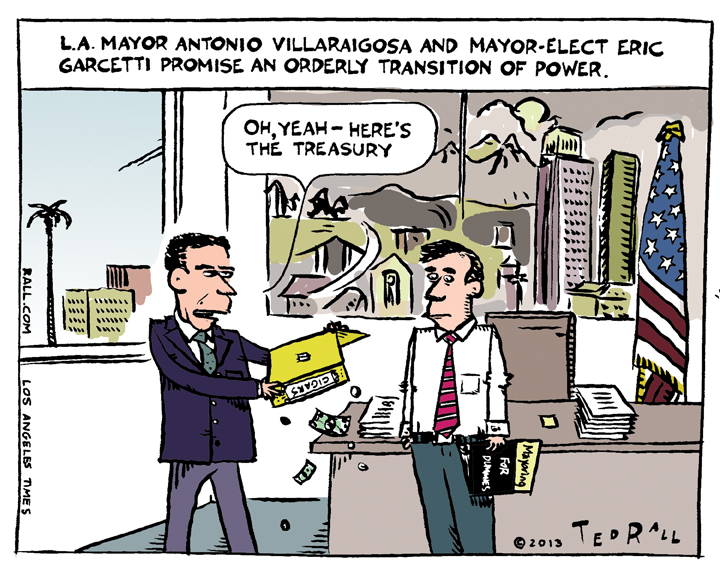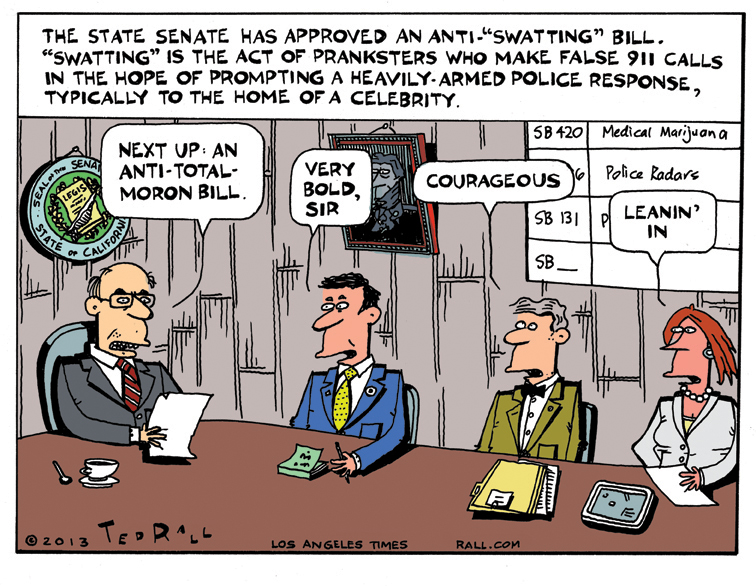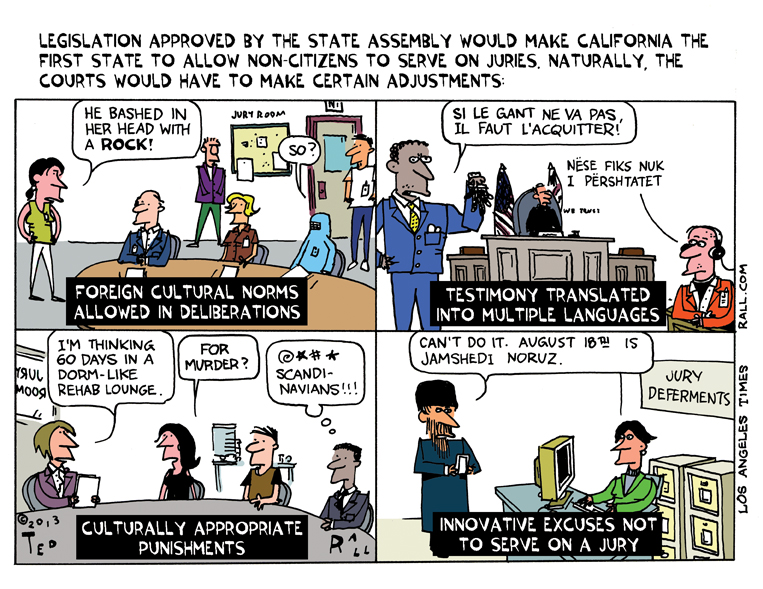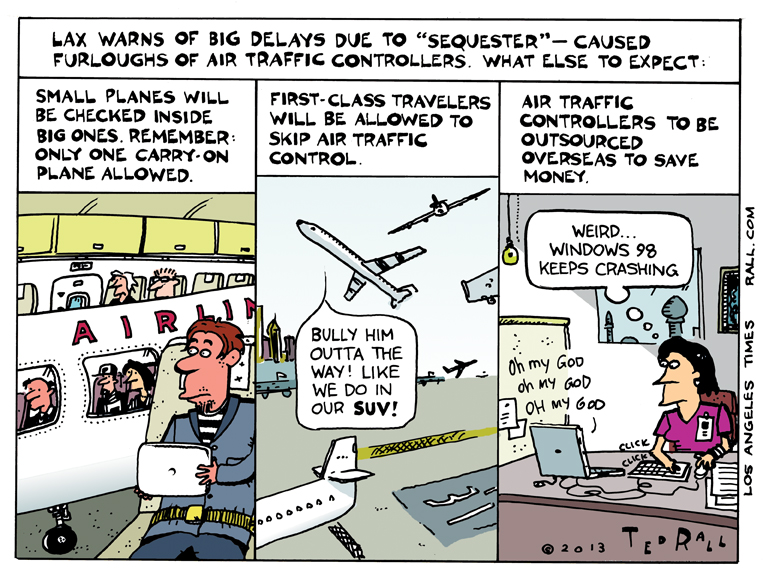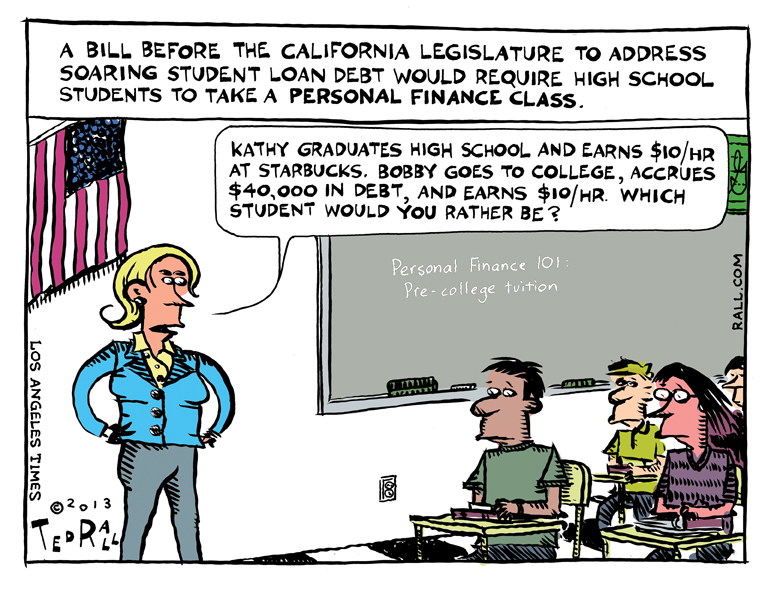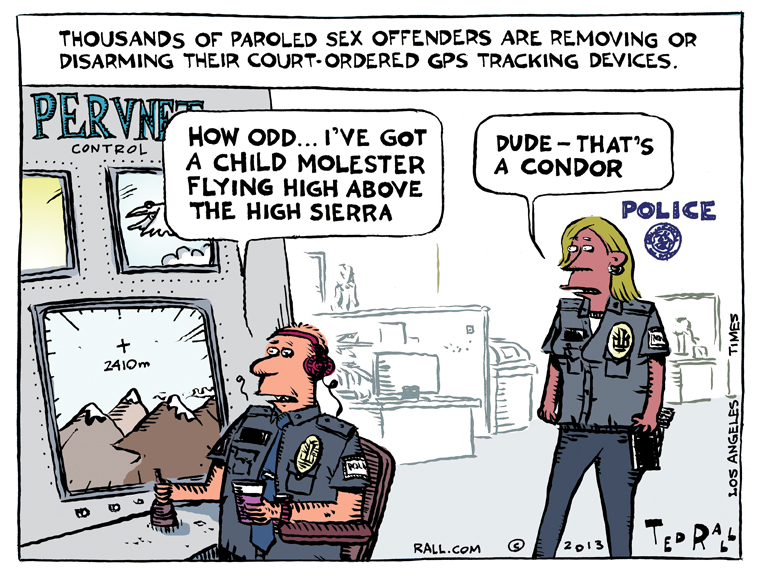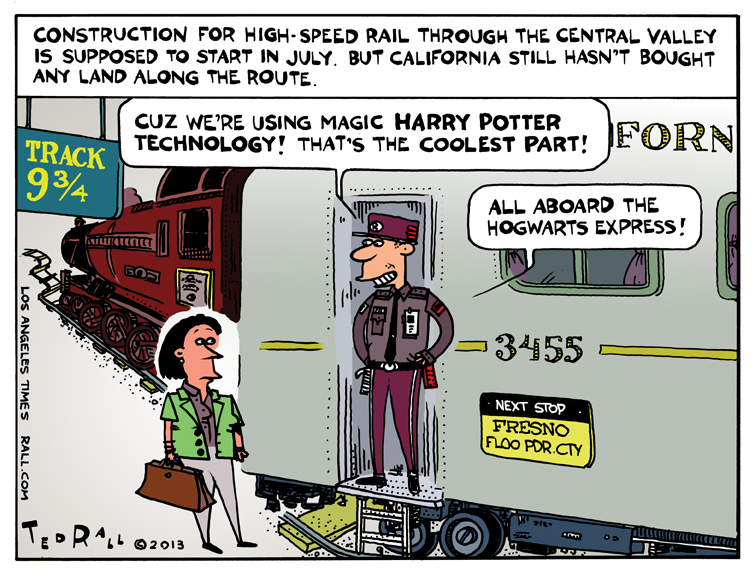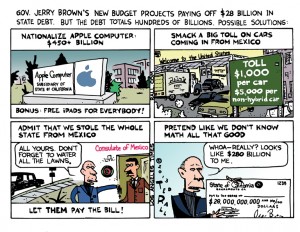I draw cartoons for The Los Angeles Times about issues related to California and the Southland (metro Los Angeles).
This week: Los Angeles Mayor Antonio Villaraigosa and Mayor-elect Eric Garcetti promise an orderly transition of power. Don’t forget the ever-important transfer of the budget.

